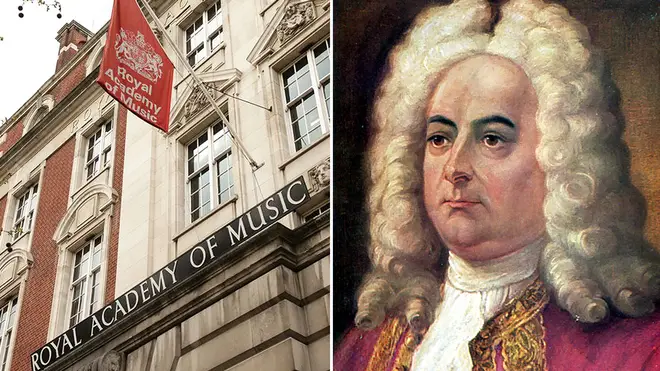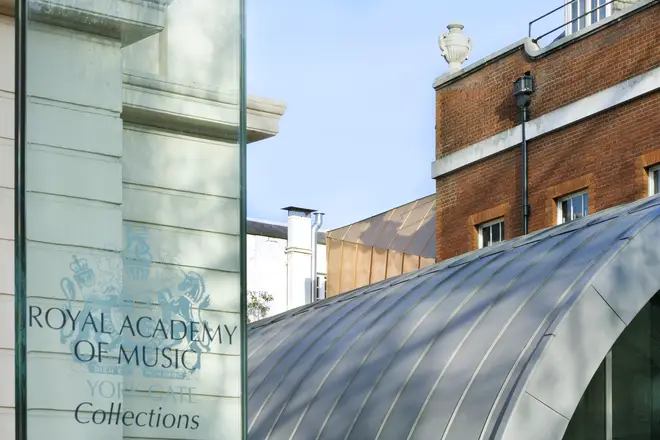On Air Now
Early Breakfast with Lucy Coward 4am - 6:30am
24 May 2021, 12:17

Pianos made with colonial ivory, and sculptures of a revered composer who invested heavily in the slave trade, are under review at the UK’s oldest conservatoire.
Officials at the Royal Academy of Music have confirmed they are reassessing the conservatoire’s 200-year-old collection to free up space for student learning, and to review its artefacts “through a decolonisation lens”.
The review could give wider context to the Academy’s displayed portraits and sculptures of Baroque composer George Frideric Handel, who we now know repeatedly invested in the transatlantic slave trade.
Other items ripe for reevaluation in the on-site museum include rare 18th-century pianos and violins, whose keys and fingerboards were made with colonial ivory and ebony.
A spokesperson for the conservatoire told Classic FM: “The Academy has always trained its students for the evolving professional environments of being a musician.
“It is vital that they understand the cultural, political and socio-economic forces that have shaped musical traditions, as well as the issues that are shaping it in the present, such as the pandemic and questions around equality, diversity and inclusion.”
Read more: Oxford University could ‘decolonise’ music syllabus to make it less ‘white European’

The aim of reviewing the Academy’s 22,000-strong collection of artefacts is primarily “to maximise space for teaching and learning at our central London premises”.
But, a spokesperson added, “As part of this we will be reviewing the collection through a decolonisation lens.”
Read more: ‘Long time coming’ – diverse new music curriculum for England’s schoolchildren
It is understood the collection will be assessed based on their donors, makers and origins of materials, in order to re-contextualise the objects for today’s audiences and students at the UK’s oldest music conservatoire.
The Academy told Classic FM: “This training includes giving voice to figures who have previously been silenced or marginalised, as well as understanding the contexts in which iconic figures such as Handel and Mozart worked.”
But, the conservatoire emphasised, it will not be removing Handel from its syllabus, as has been suggested elsewhere. “For us, inclusion means widening the net, not cancelling historical figures and artefacts,” the Academy added.

Handel's Passacaglia in G minor performed by Red Priest
In 2015 Dr David Hunter, lecturer at the Butler School of Music in Texas, found Handel repeatedly invested in the Royal African Company. “It was quite by chance that I came across Handel’s name in the investors of the Royal Africa Company – the main slave traders in the 1710s,” he said.
Hunter said many members of the 18th-century wealthy elite would have profited from slavery, and what’s crucial now is to provide contextual focus of such historical figures and objects.
“Music history cannot of itself right the wrongs of slavery, but it can and should be open about the roles and actions of the participants who used the profits from owning people and subjugating them for personal or business profit to fund lifestyles in which music played a prominent role,” Hunter wrote.